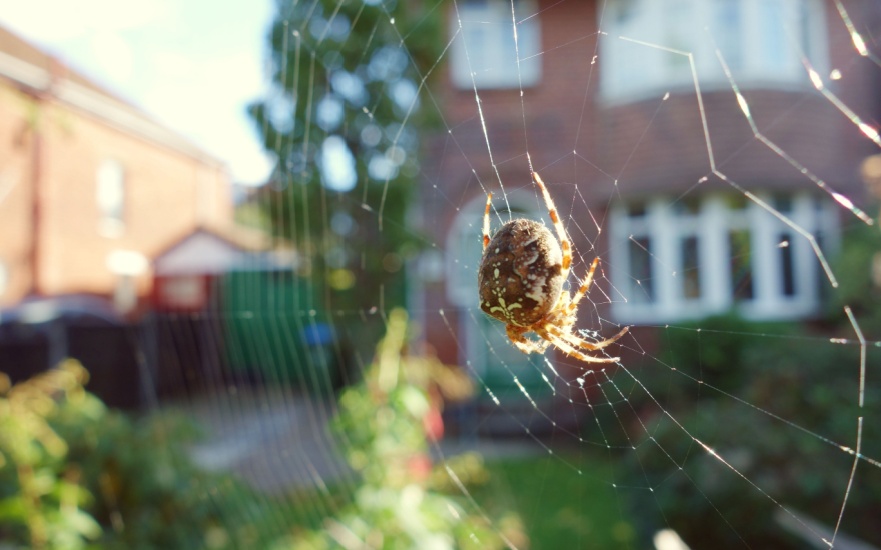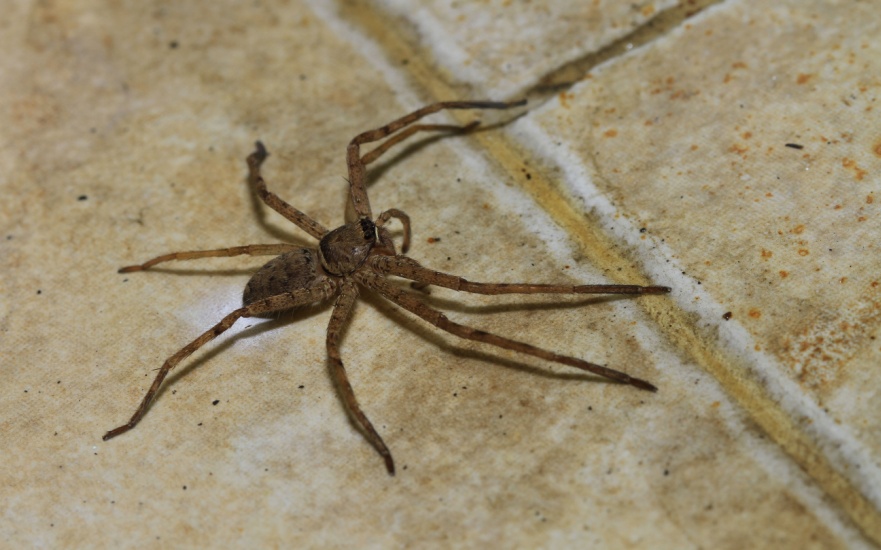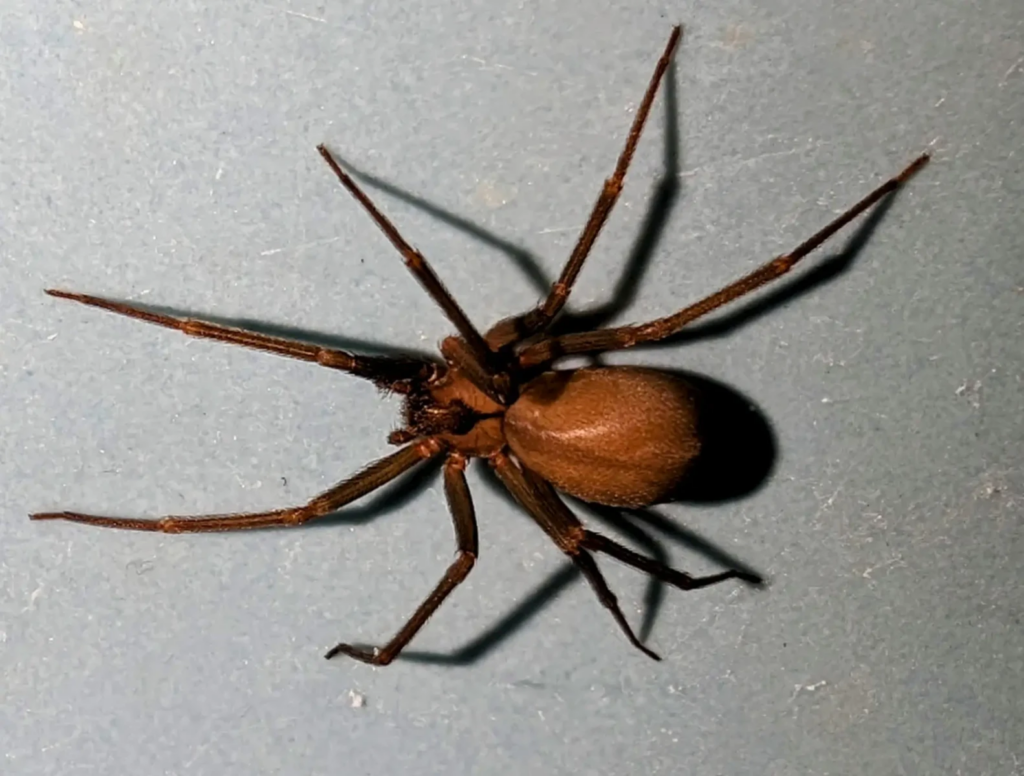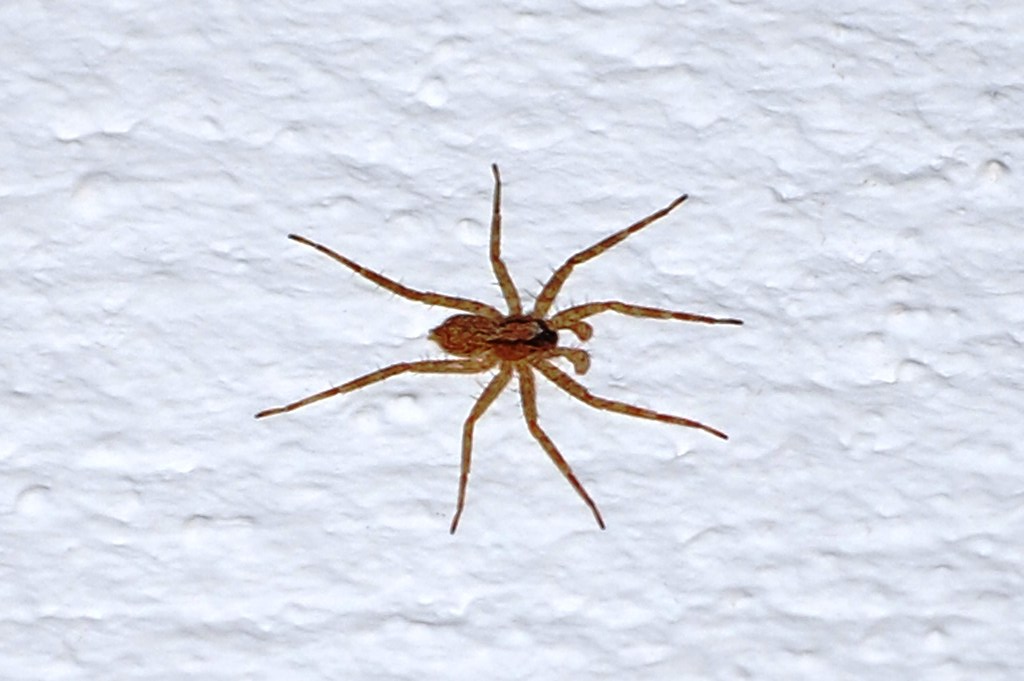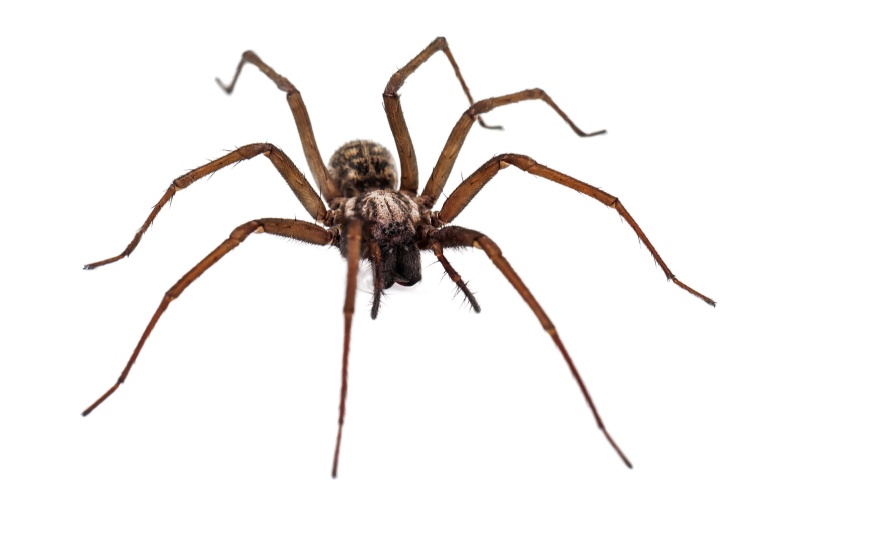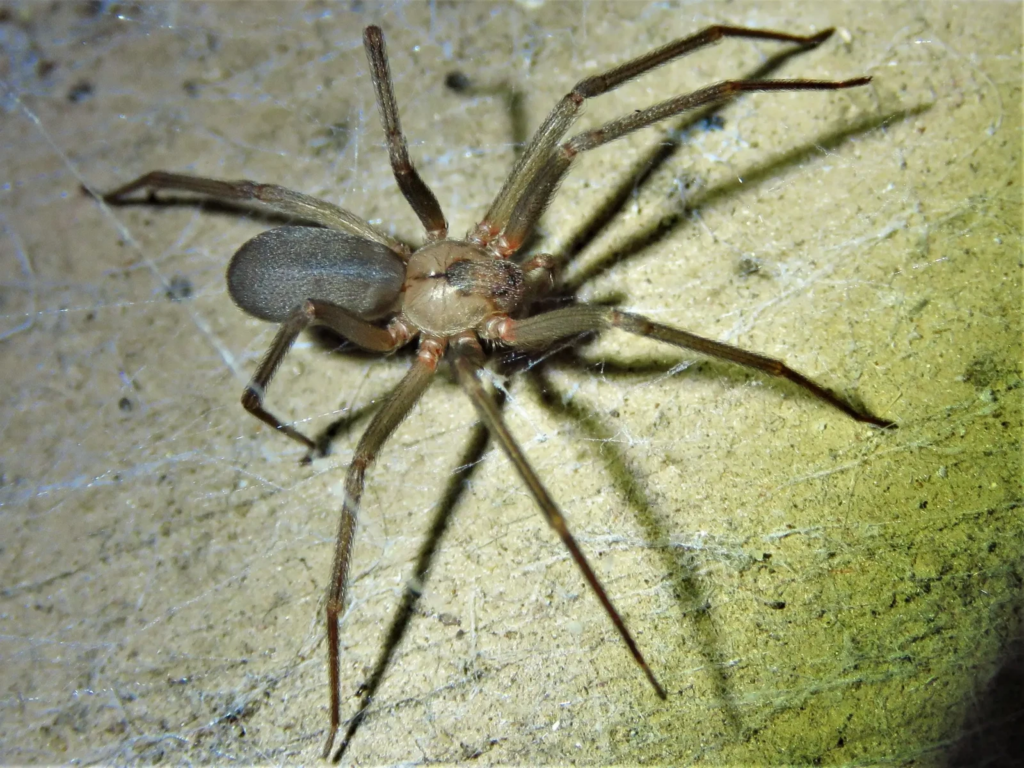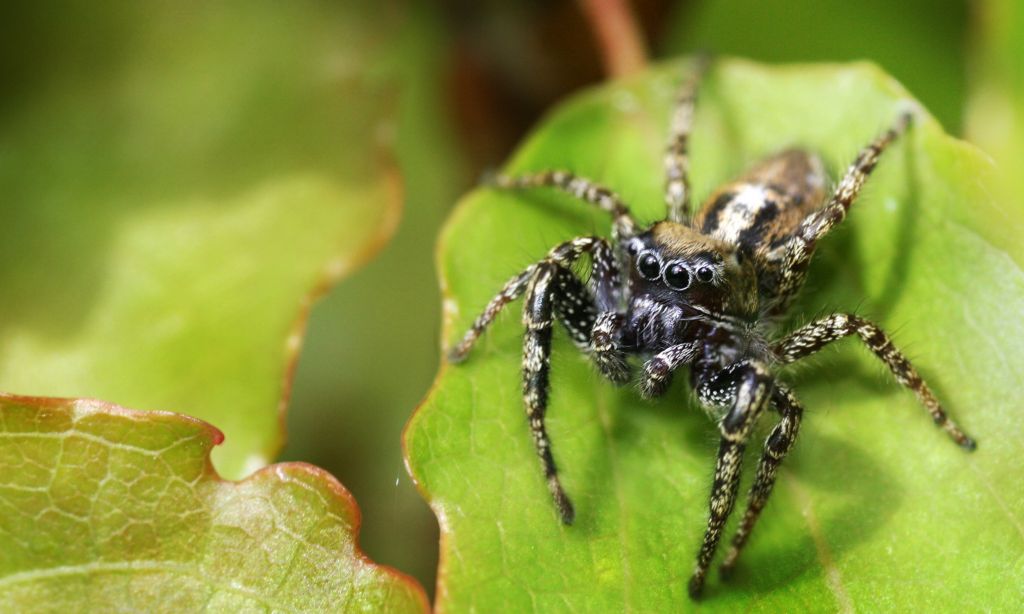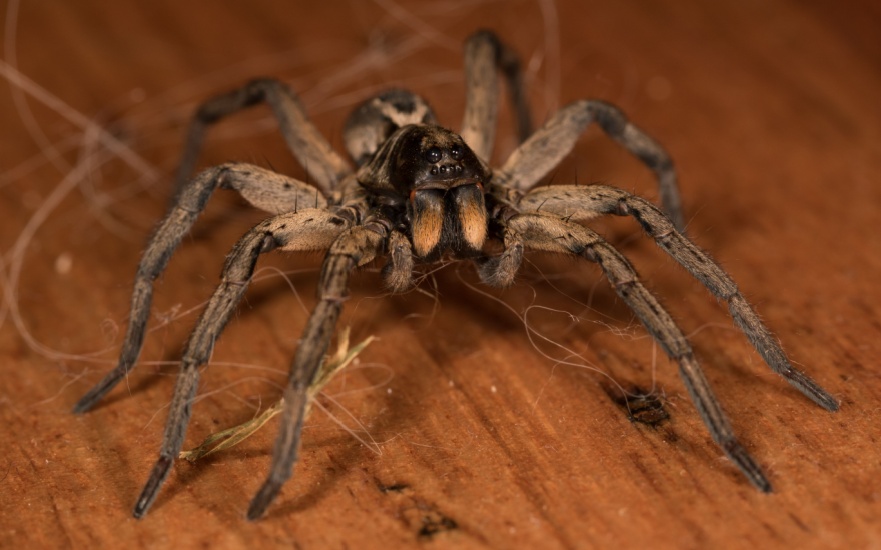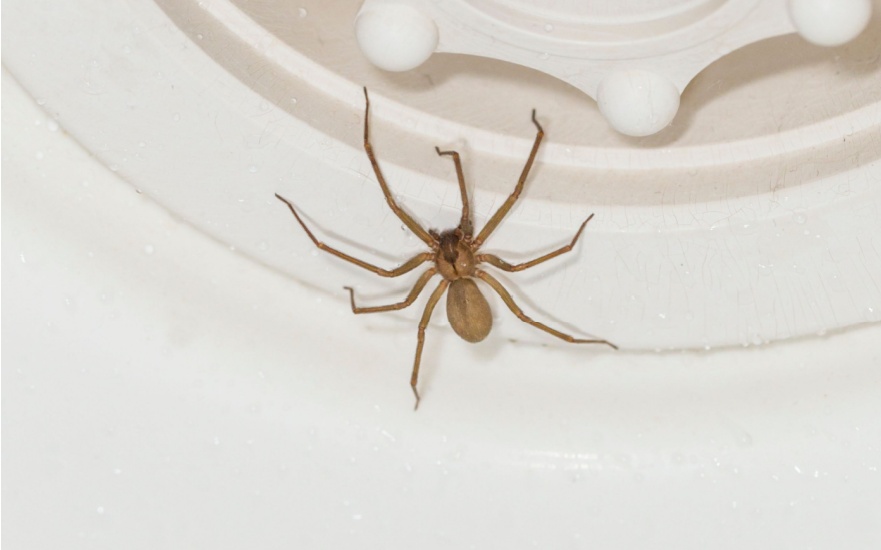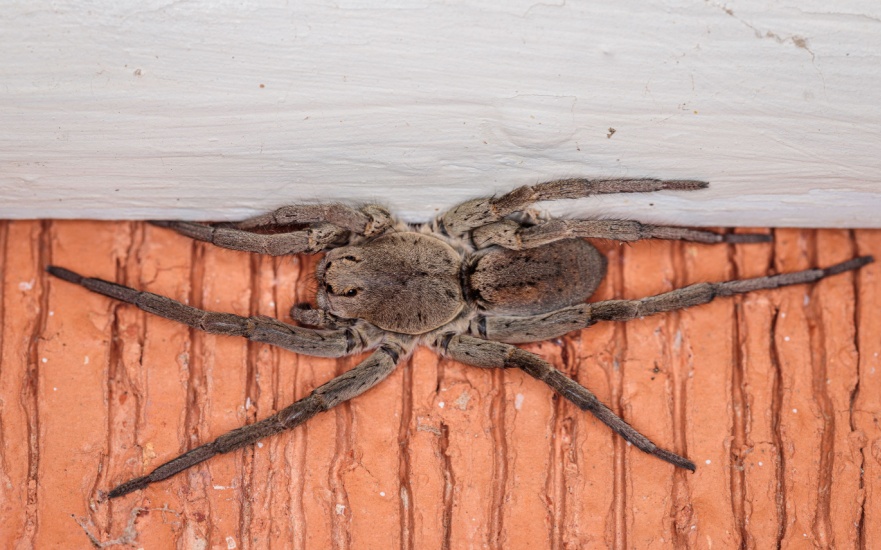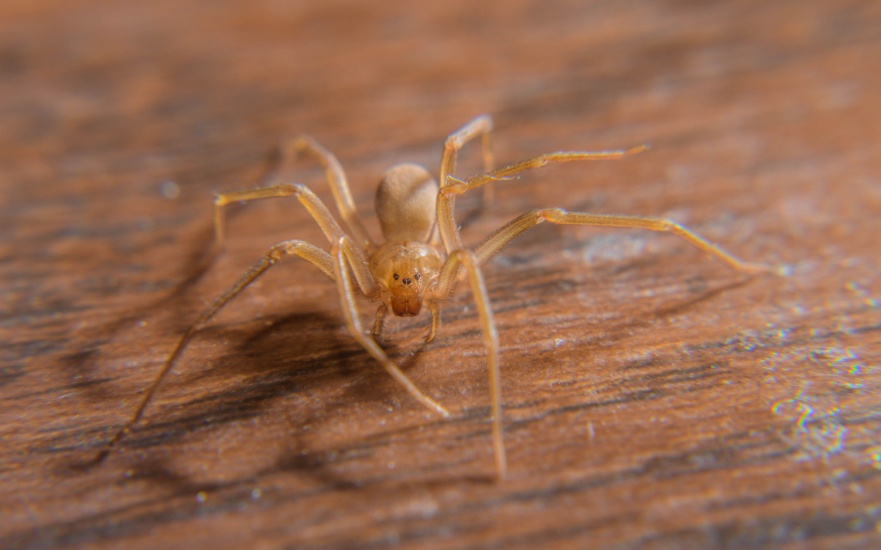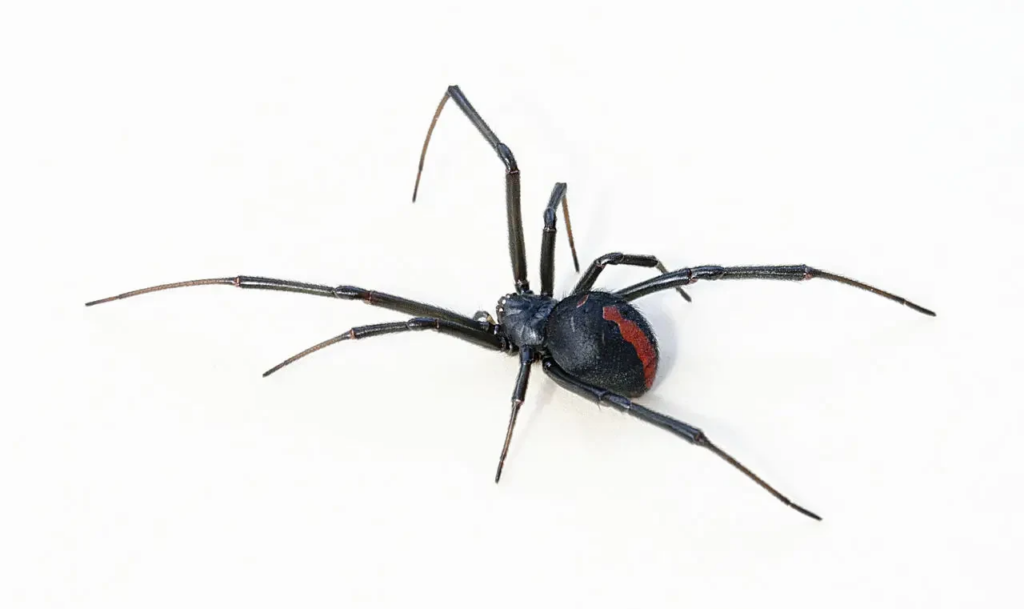Are unwanted eight-legged visitors taking over your Dallas home? Spiders are common in homes without year-round pest control. For those who fear spiders, seeking professional help is often the first step towards a spider-free home.
At Vinx Pest Control, we understand the importance of a spider-free living space. Our spider removal services are designed to help homeowners eliminate spiders and prevent future infestations. With our expertise in spider extermination, you can enjoy a safe and comfortable home environment.
Key Takeaways
- Spiders are a common problem in Dallas homes without regular pest control.
- Vinx Pest Control offers effective spider removal services.
- Our spider extermination methods are safe and efficient.
- Year-round pest control can prevent spider infestations.
- Professional pest control services can provide peace of mind for homeowners.
The Spider Problem in Dallas Homes
Dallas homes face a big spider problem. The local weather and land shape help spiders grow. This makes spiders a big issue for homeowners.
Why Dallas Properties Are Vulnerable to Spider Infestations
Dallas homes are easy targets for spiders. They are near woods or have lots of plants outside. Also, clutter or woodpiles near homes give spiders places to hide and breed.
For good spider prevention tips, knowing these things is key.
How Dallas Climate Affects Spider Activity
The Dallas weather helps spiders a lot. The warm air and moisture make spiders happy. When it’s warmer, spiders are more active, leading to more infestations.
Knowing how the weather affects spiders helps homeowners fight pests better.

Common Spider Species Invading Dallas Homes
Knowing which spiders invade Dallas homes is key for pest control. Homeowners must learn about different spiders to protect their homes.
Dangerous Spiders: Black Widows and Brown Recluses
Some spiders are very dangerous because of their venom. In Dallas, black widows and brown recluses are two such spiders.
Identifying Black Widows
Black widow spiders have black bodies with a red hourglass on their belly. They are small, with females bigger than males.
Recognizing Brown Recluse Spiders
Brown recluse spiders have a violin mark on their body and are light brown. Their venom can cause serious skin problems.
Nuisance Spiders: House Spiders, Wolf Spiders, and Jumping Spiders
There are also spiders that are just a bother in Dallas homes. House spiders, wolf spiders, and jumping spiders are common.
House spiders are harmless but make messy webs. Wolf spiders are big and hairy, but not usually dangerous. Jumping spiders can jump far.
Knowing these spiders helps figure out the best pest control.
Health Risks and Property Concerns from Spider Infestations
Spiders in your Dallas home can cause health problems and damage. They can lead to serious issues, like allergies or bites from venomous spiders.
Medical Implications of Spider Bites
Spider bites can cause many health problems. They can range from small skin issues to serious reactions. Venomous spiders in Dallas, like black widows and brown recluses, can hurt a lot.
Some bites can cause serious problems. This includes infections or other big health issues.
How Spider Webs and Activity Impact Your Home
Spiders can also harm your home. Their webs can damage surfaces and stain walls. They also make your home look messy.
Spiders can also attract other pests. This can lead to more damage if not handled.
Recognizing Signs of a Spider Infestation
Spotting a spider infestation is the first step to a spider-free home. Spiders can be a big problem. Finding them early helps control them better.
Visible Spider Webs and Egg Sacs
Seeing spider webs and egg sacs is a clear sign of spiders. They show up in corners, along walls, and more. If you see lots of webs or egg sacs, it means you have many spiders. For more info, check our page on the top signs of a spider.

Increased Spider Sightings and Other Warning Signs
Seeing more spiders, even during the day, means you might have a big problem. Also, finding spiders in odd places like walls or bathtubs is a warning. If you see these signs, act fast to fix the issue.
DIY Spider Control Methods for Dallas Homeowners
Dallas homeowners can fight spider problems with DIY methods. These include natural repellents and store-bought products. You can pick what works best for you.
Natural Spider Repellents and Home Remedies
Some like to use natural ways to keep spiders away. These methods are good for the planet and work well.
Essential Oils and Vinegar Solutions
Peppermint and tea tree oils can keep spiders away. Mix them with water and spray around your home. Vinegar also works because spiders don’t like its acidity.
Diatomaceous Earth and Other Natural Deterrents
Diatomaceous earth is a safe powder that repels and kills spiders. Sprinkle it where spiders enter or hang out. You can also use citrus peels and cinnamon.
Store-Bought Spider Elimination Products
Some prefer to buy products to get rid of spiders. You can find sprays, aerosols, traps, and baits. Always follow the instructions to use them safely and right.
Using these DIY methods, Dallas homeowners can keep their homes spider-free.
How to Eliminate Spiders Effectively from Your Home
Getting rid of spiders isn’t just about killing the ones you see. It’s about making your home a place spiders don’t want to be. Homeowners in Dallas need to use many ways to keep spiders away. This includes getting rid of spiders and making your home less appealing to them.
Comprehensive Spider Removal Techniques
Removing spiders from your home takes a few steps. Here are some ways to do it:
- Clean and declutter to make less space for spiders
- Use products made just for getting rid of spiders
- Try natural ways to keep spiders away
Using these methods together helps keep your home spider-free.
Addressing Spider Entry Points and Harborage Areas
Spiders can get into your home in many ways. They might sneak in through cracks, crevices, or vents. To keep spiders out, you should:
- Seal all entry points, like windows, doors, and foundation cracks
- Keep your home tidy and organized to reduce places for spiders to hide
- Make sure to clean well, focusing on areas where spiders like to be
By fixing these issues, you can make your home less welcoming to spiders.

Professional Spider Extermination Services
At Vinx Pest Control, we know how important it is to get rid of spiders. We offer professional services for Dallas homeowners. Our plan makes sure spiders don’t come back.
The Vinx Pest Control Spider Treatment Process
Our spider treatment is thorough and quick. It starts with:
Initial Inspection and Assessment
Our experts check your home carefully. They find out how bad the spider problem is and where they come in.
Customized Treatment Plans
After checking, we make a plan just for you. It might include different treatments and ways to stop spiders.
Follow-up and Maintenance Services
We also check on your home after treatment. This keeps spiders away for good.
Advanced Spider Control Technologies and Methods
At Vinx Pest Control, we use the latest spider control. Some of our methods are:
- Special treatments with special tools
- Sealing where spiders get in
- Using spidericides that last
- Advice on how to keep spiders out of your home
Our advanced methods and plans help Dallas homeowners fight off spiders.
Spider Prevention Tips for Long-Term Control
To keep spiders away, you need to do a few things. Seal up holes and keep your home’s outside in good shape. Knowing what spiders like and acting early can help a lot.
Sealing Entry Points and Reducing Attractants
Spiders can sneak in through tiny holes. So, it’s important to block all small gaps around windows, doors, and pipes. Use caulk or weatherstripping to close these holes. Also, make sure your home’s base is strong.
Also, keep your home tidy and clutter-free. This makes it less appealing to spiders.
- Check your home’s edge often for damage or wear.
- Use door sweeps or weatherstripping to seal gaps under doors.
- Keep your home free of clutter and dust.
Landscaping and Exterior Maintenance to Deter Spiders
How you take care of your yard and home’s outside is key. A neat yard with no debris means fewer spiders. Cut back trees and bushes that touch your house. And, keep your grass short.
Also, check your home’s outside often for spider signs. Think about using lights outside that don’t draw bugs, which spiders like.
- Trim vegetation away from your home’s foundation.
- Use outdoor lighting that is less appealing to insects.
- Regularly inspect your home’s exterior for spider webs and egg sacs.
Seasonal Spider Control Strategies in Dallas
As the seasons change in Dallas, so do the ways to control spiders. It’s key to adjust your methods to keep your home spider-free.

Spring and Summer Spider Management
Spring and summer are when spiders are most active. Their numbers grow a lot. To fight this, get rid of clutter, cut down on moisture, and block their entry points.
Keep your home clean, focusing on windows, doors, and baseboards. Use natural repellents like essential oils or diatomaceous earth. For better control, talk to spider control experts in Dallas, TX.
Fall and Winter Spider Prevention
In fall and winter, spiders look for warm places. Your home becomes a cozy spot for them. To stop this, seal any gaps around your home.
Keep your home tidy and clutter-free. Use door sweeps or weatherstripping to block gaps under doors. These steps help keep spiders out during the cold months.
Integrated Pest Management for Ongoing Spider Control
Integrated pest management is a smart way to keep spiders away from Dallas homes. It uses many techniques to stop and manage spider problems.
Combining Methods for Effective Spider Management
This method mixes different ways to control spiders. It includes sealing holes, cleaning up clutter, and using special treatments.
We look at your home to find where spiders might come in. Then, we use the best ways to keep them out.
Monitoring and Maintenance Programs
Keeping an eye on your home and regular upkeep are key. We check for spider signs often. This lets us act fast.
Our maintenance plans include regular treatments and updates. This keeps your home spider-free for a long time.
Why Dallas Residents Trust Vinx Pest Control for Spider Removal
At Vinx Pest Control, we’re proud to be the go-to for spider removal in Dallas. We focus on making our customers happy and have lots of experience with spiders. This makes us a top choice for effective spider control.
Our Spider Control Expertise and Specialized Equipment
Our team at Vinx Pest Control uses the latest tech and special tools to fight spider infestations. We do detailed checks, targeted treatments, and prevention to get rid of spiders for good.
Choosing Vinx Pest Control means Dallas residents get top-notch service from experts. They know how to handle local spider problems.
Customer Satisfaction and Guaranteed Results
At Vinx Pest Control, we aim for the best customer service and results. We know every home is unique. So, we customize our spider control to fit each client’s needs.
Want to know more about picking the right pest control in Dallas, TX? Check out our page on who to hire for pest control. We promise satisfaction and back our work with a guarantee.
Conclusion: Enjoy Your Spider-Free Dallas Home
Getting rid of spiders makes our homes safe and comfy. We learn about spider problems in Dallas and use good ways to remove them. This way, we can live in our homes without spiders bothering us.
Vinx Pest Control helps keep your home spider-free. We use special tools and know-how to get rid of spiders. We also help you keep spiders away by fixing entry points and keeping your yard nice.
Choosing Vinx Pest Control means your home is safe from spiders. We work hard to keep your home spider-free. You can relax knowing your family and home are protected.
FAQ
Q: What are the most common spider species found in Dallas homes?
A: In Dallas homes, you’ll often find black widows, brown recluses, and house spiders. Wolf spiders and jumping spiders are also common. We know how to get rid of them.
Q: How can I tell if I have a spider infestation in my home?
A: Look for spider webs, egg sacs, and more spiders. We help you spot these signs. Then, we use special methods to get rid of them.
Q: Are spider bites a serious health risk?
A: Yes, bites from venomous spiders like black widows and brown recluses are serious. We talk about the dangers. And we offer services to keep you safe.
Q: Can I get rid of spiders on my own using DIY methods?
A: DIY methods like natural repellents can help some. But for big infestations, you need a better plan. We seal entry points and tackle where spiders hide.
Q: How can I prevent spider infestations in my home?
A: Seal entry points and keep your home clean. Our tips can help you fight spiders before they start.
Q: What are the benefits of hiring a professional spider control service?
A: Companies like Vinx Pest Control use the latest tech to fight spiders. We’re experts, equipped, and dedicated to making your home spider-free.
Q: How does Vinx Pest Control’s spider treatment process work?
A: We find where spiders get in, treat where they hide, and use advanced tech to get rid of them. We make sure Dallas homes are spider-free.
Q: What is integrated pest management, and how does it help with spider control?
A: It’s a mix of methods to manage pests well. We use it for ongoing spider control. This keeps your home spider-free for good.
Q: Are there any seasonal strategies for controlling spiders in Dallas?
A: Yes, we have plans for each season. Spring and summer need special care, while fall and winter need prevention. Our experts help you plan all year.
Q: How can I trust Vinx Pest Control for spider removal?
A: We’re known for effective spider removal in Dallas. Our skills, gear, and focus on you make us reliable.
Q: What are some effective spider prevention tips for homeowners?
A: Seal up your home, keep it tidy, and check the outside. Regular checks help catch spiders early.
Q: Can spider infestations cause property damage?
A: Yes, they can damage your home if not stopped. We talk about how webs and spiders can harm your home. And we have ways to stop it.



